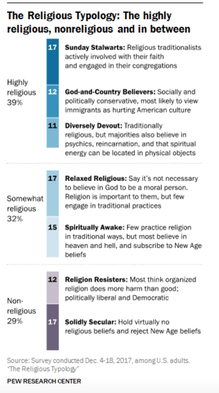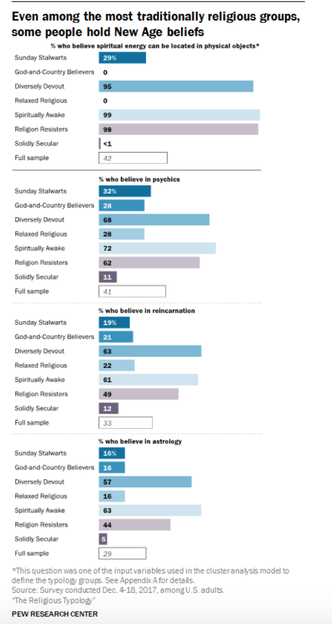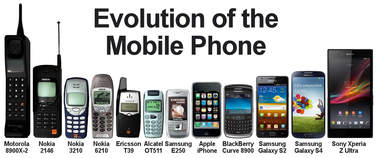 For the last few weeks, the Tampa Bay area has been awash in "Fitzmagic" as a career backup quarterback shone with an unprecedented start to the season. And honestly, who can blame them? Harvard graduate, 7 different teams, a lumberjack beard, and impeccable style at a press conference. A lot of times in ministry we can fall victim to the same power of the moment. We can get so caught up in the latest trends, the short-term results, or the flashes and lose sight of the long range. Whenever I talk to our staff about our church, I always preach about the "long view." If we look week-to-week, we might find ourselves discouraged or wondering if anything is really working. For me it's on Monday, and I'll catch myself looking back and focusing too much on the week before. Taking the long view is where you chart your perspective not in weeks or months but in years. It goes against what many of us have experienced, where the average tenure of a pastor is < 5 years, and our microwave society has an expectation of immediate results (ie., the book Have a New Kid by Friday). But the kitchen of spiritual growth and church health is a Crock Pot, which is fitting for a Baptist. It's slow. It's patient. It's deliberate. It may be generational. And we can't get bogged down in the moment. I'd love to give 4 ways to help pastors see the long view. 1. View data as trends, not snapshots - Sure you had an awesome offering last week, or maybe your attendance tanked. Instead of looking at each week, look at trends. Look at the data monthly, quarterly, annually. That way your tank days aren't your focus, they're an outlier, along with your bumper days. When you look at trends, you're seeing the bigger picture, and not just the tree in front of you. 2. Talk to long-timers - You've got people in your church who've been there longer than you. They've been there during the "good days" or they've weathered difficult ones. Talk to them, get their feelings on how things are going. Listen to them as they share what changes, direction, attitudes, and chatter they're hearing. 3. Plan to stay - You can't truly say you're faithfully serving Jesus when you're spending your day surfing classifieds or hitting up friends for references. If God wants to move you, He will. But far too often we don't see the long term results because we never committed to the long term. When we plan to stay, we're opening ourselves up to the kind of generational change we read about. 4. Preach systematically through the Bible - Perhaps the best way to take the long view in ministry is to make a habit of expository preaching. We're not sustained by Cheesecake Factory and filet mignon, we're sustained daily by scrambled eggs and pot roast and the normal grocery store. Expository preaching is the steady diet of a healthy church, and is the food that grows a healthy Christian. It's not "Seven Steps to Greener Grass," but it is producing in people a biblical worldview, a knowledge of God, and a growing love for the Word. What have you done as a pastor to encourage taking the long view in ministry? And should I dress up as Fitzmagic for our church's Trunk or Treat?
1 Comment
 One of the things I love about our Amazon subscription is that they have a very lenient and gracious return/refund policy. Several times we've even been told to keep the defective item and they'd send us a replacement at no cost. It's really good to have when we're trying to buy clothes for the boys and have to guess at sizes. Earlier today an article ran on Facts & Trends that talked about an emerging practice in churches of offering a "90 Day Guarantee" on faithful giving. The premise is essentially if you aren't being blessed and seeing increases in your own personal life that you can get your tithe back, no questions asked. It's called "No Risk Tithing" and it sounds nice at first, but it's not just (I believe) an unwise practice but a practice that distorts the very purpose of sacrificial, generous giving. Make no mistake, as pastors we have a responsibility to encourage and teach our churches to be generous. That generosity is more than with money, but it certainly isn't less. Paul even tells the Corinthian church that God loves a "cheerful giver" which is probably better translated as a "hilarious" giver or an "overjoyed" giver. It's not a giver who gives out of duty, but it's one who laughs with joy knowing they are being generous. With that, I want to encourage pastors to pursue a few steps in teaching about giving: 1. Know Your Church's Giving - I do not believe you as a pastor should know who gives what, but you should know what giving units are giving and how much they are giving. Knowing what someone gives can have a negative impact, especially if it's leadership. But we do need to know giving amounts, giving trends, giving units, and data like median giving, average giving, etc. One pastor friend of mine encourages others to look not just at amounts but the age of givers. 2. Don't Turn God into an ATM - What happens far too often when we come to passages like Malachi 3:10 and we're trying to think of how to connect giving to blessing is that we make God into an ATM who gives back money. Many of us can testify of times God provided for us in ways that defy expectations, even if it's through unusual means (we got rear-ended by a drunk driver and were able to pay our out-of-pocket birth costs for one of our kids). But it doesn't mean that God works like compound interest. Sometimes you can be sacrificial and generous and still default on your car loan. Or you can be denied that raise or promotion. 3. Teach Giving as Investment - I love how Jesus talks about treasures in the Sermon on the Mount. We can either store up earthly treasures or heavenly treasures. Earthly treasures get rusted, they fall apart, they wear down, they go obsolete, they have diminishing returns. But heavenly treasures are forever, they last, they never go away. When we give, we're making eternal investments. We're keeping the lights on so our local church can be a missions outpost. We're forwarding some on to global missions. We're supporting local ministries like pregnancy centers and food pantries. We're giving so the Gospel can go into dense urban settings. It's investing. And the return isn't a dividend, it's in people being added to the Kingdom. 4. Attitude > Amount - One of the indictments of the prophets in the Old Testament was that the offerings were weak and without faith. They were given out of duty and obligation rather than joy and delight. In the New Testament, there's not a mention of the amount we're to give, but there is a lot on the attitude we should have. God calls us to be cheerful, to be joyous, to be generous, to give sacrificially. Our amount should be sacrificial, but not at the expense of our attitude turning sour. 5. Set the Pace - I don't think you as a pastor should disclose your giving amounts, that's not anything we'd force a church member to do, and I don't think yours should be open record. But you should know that you are giving sacrificially and faithfully. You should be able to, with a clean conscience, say you're doing your part to lead by giving. You should expect leadership in the church to do the same as well. Because if you're not willing to lead the way, don't be surprised when no one is following. What do you do as a pastor to teach and encourage faithful giving?  It's no secret for many of us leading in the local church that we're dealing with taking our folks into uncharted waters. We've waded deep into a world that is almost exclusively digital. The way we get our news, pay our bills, watch movies, book our Disney trips, and more has passed from a person to a smartphone. A lot of us are serving in churches that have been slower to adapt to the changes and the influx of new tech. For every cutting-edge church with a digital campus and an app, there are hundreds who still own an overhead projector or a book of clip art. The reality is two-fold: 1) We've been here before, and 2) We'll be here again. Slate has an article talking about the attitude shift that happens every time a major advancement happens. Radio was seen as mind-numbing, television was seen as a threat, even newspapers were feared because news would come from them rather than the pulpit. And all of this is before iPhones, Facebook, and cable television. This is especially for those of us who are younger serving in a church. We fight an internal struggle between being frustrated with the slow pace and a desire to catch our churches up. I'll hear younger ministry leaders expressing frustration at older church members who refuse to adapt or who are slow to embrace a digital newsletter rather than a mailing. Relax. Here's a few things you can do to lead wisely and lead well.
Don't Throw Too Much At Once - Whenever we want to introduce new tech or adapt emerging platforms in our worship or administration in the church, we can't expect everyone to jump on board immediately to everything. I've learned the hard way that things that happen slower and more intentional are more likely to succeed than things shoved down people's throats. One thing that's been helpful for me has been to list out the number of Presidents, the world history, the new things that have come that some of our senior saints have seen in their lifetime. They watched a man land on the moon. They saw JFK assassinated. They lived through the Cold War. Don't Ridicule - This is an appeal more to our basic decency than anything else. Just because someone in your church, whether they're old or young, is unwilling to embrace some new tech or adapt a new platform is not reflective of their intelligence or walk with Jesus. Part of pastoring well is shepherding well, and we can't in one breath say we love our people and in the other make fun of them. Coach and Guide - I'm 36 and I need to be coached often on new things from my 22 year old worship leader or from the teenagers in our church. Things that come naturally to them are different to this Xennial. If your church is building an app, walk people through it. If you're subscribing to something like RightNow Media, host an orientation. Take extra time to train your AV crew so they know how to work the new system. It's worth it. And you never know, you might get emoji texts from people you never expected. Demonstrate Efficiency - Think about it, if your church has a monthly newsletter and you're sending it by mail to 150 homes, that's an annual cost of $882. What if that could be turned into $0 by doing a digital newsletter produced on Publisher or MailChimp or Constant Contact? That's nearly $1000 that can be reinvested in ministry. How much are you paying each year in checks? Would direct deposit be cheaper? If anything is consistent across churches, denominations, age brackets, and theology: we all like to save money and time. Point that out. Sell the advantage. Key in on the savings of both time and money for a ministry. Our church has started doing a lot of purchases on Amazon instead of tracking down stores. With Prime shipping, we're saving money over the course of the year getting needed supplies for our office. Walk Slowly - Nothing will be transformed overnight. As a leader, you have to walk slowly on introducing new changes, new technology, and you have to be willing to eat a lot of pie. The people resistant to changes and adapting new tech aren't anti-technology, they've gotten through their entire life without this and they may not see the need for it now. I've seen this when churches talk about online bill payments. It's cheaper and easier to do electronic payments, but for some they lived with written checks and licking stamps. It's not bad, it's what they know. How have you led to embracing new technology or adapting new platforms?  Last week a phenomenal research project was released by Pew, which laid out American views of religion on a typological spectrum. At one end are the die hard "Sunday Stalwarts," and at the other the "Solidly Secular." Most of the findings were unsurprising: Sunday Stalwarts were the ones who most frequently attended services and read Scripture, Solidly Secular tended to be more affluent and higher educated, a growing number of God and Country tended to skew more towards conservative and isolationist ideology as a religious identity, and that most people who identified as religious or Christian did not regularly attend worship. Most of these categories have been around in one form or another for quite some time. And it's these categories that have helped us understand our communities and the places we minister. As church leaders, understanding religious spectrum, especially in a post-Christian world, are critical for us to faithfully shepherd people in their daily lives.  But one finding was surprising, and prompted several spinoff articles highlighting the unique finding. The Sunday Stalwarts, who exhibited the most traditional religious views in the spectrum, who are most faithful in attending services and reading Scripture, had some really divergent views on New Age belief. Of the Stalwarts, 29% believed in "energy in physical objects" (like crystals), 32% believed in the power of psychics, 19% believe in reincarnation, and 16% believe in astrology. The implication is that many of the Sunday Stalwarts who sing classic hymns, attend Sunday School, and believe that their neighbors need to hear about Jesus are also willing to call a psychic, buy crystals, and hope they don't come back as a cockroach. For Pew, this was surprising because it went against the current of everything they had expected traditional religious belief to contain. And for those of us who lead in churches, it should be surprising because it shows that we have a long way to go in helping shape a biblical worldview in our churches. We cannot simply assume that all the people who gather on Sunday morning have a consistent and biblically informed worldview. Or that those who actively pledge membership to our churches are aligned with what we believe. As I read that, I was drawn to a phrase written on the mantle of my seminary alma mater's main building. It's a Greek inscription of 2 Timothy 1:15, "rightly divide the word of truth." It's a reminder that as Christian leaders, and certainly as pastors or teachers in the church, that we are in the business of truth. And that work requires that we not only highly view truth, but we rightly handle it. So how can we do that?
1. Faithfully Preach & Teach the Bible - Whenever we have an opportunity to teach or speak, teach or speak from the Word. When our pulpits become a place for us to wax on the good ol' days or where we cry against the ills of society, we're taking our people's eyes off what the preaching task is for: the proclaiming of what God has said in His Word. So whether you're an expository, book-by-book, verse-by-verse or a thematic or topical speaker, make sure you are faithfully in the Word. 2. Don't Avoid The Hard Parts - I firmly believe one of the issues behind the syncretism in the Pew research and in the rise of the "Nones" is that instead of dealing with the difficult parts of the Bible or the hard questions of our faith and ethics, we gloss over with pad answers or ignore it and move on. Whether it's sexual orientation, age of the earth, the role of faith in science, we've often reduced the Christian response to "You just have to have faith." 3. Call Spades - The other day I had a doctors appointment where I learned I had incredibly high blood numbers. My doctor wasn't a jerk about it, but he was very blunt and honest that I would need to make serious lifestyle, diet, and exercise changes in addition to medication to get those numbers under control. In Christian circles, we often set the goal at being nice, so we fail to say things are harmful because we don't want to not be nice. I'm not arguing for complete separation, but there are certain things Christians are to be set apart from, and as leaders we have a duty to set the boundary lines as a protection for people. 4. Graciously Take Questions - One thing I'm so thankful for over the years has been that mentors and leaders were willing to hear questions and thoughtfully answer them. Whether I was skeptical about something they taught on or was having trouble making connections between my faith and daily life, I was so glad they took time to answer them. We cannot blow off questions, those who ask them are seeking to know God and know Him better. 5. Pursue Humble Orthodoxy - I cannot encourage you enough as a church leader to read the book Humble Orthodoxy by Josh Harris. In it, we're reminded that our love for truth, our love for doctrine, should never outpace our love for God & Neighbor. So when we're dealing with people who have a crystal on their rear view mirror or who have gotten sucked into the latest Deepak Chopra book, we should never let our orthodoxy compromise our love and concern for them. If we do, we've missed the point of what truth means. Do you have a story about this happening in your church? How did you handle difficult issues? Were you surprised by the Pew findings? |
Scott M. DouglasA blog about leadership and the lasting legacy of family ministry. Archives
August 2023
Categories
All
|

 RSS Feed
RSS Feed



